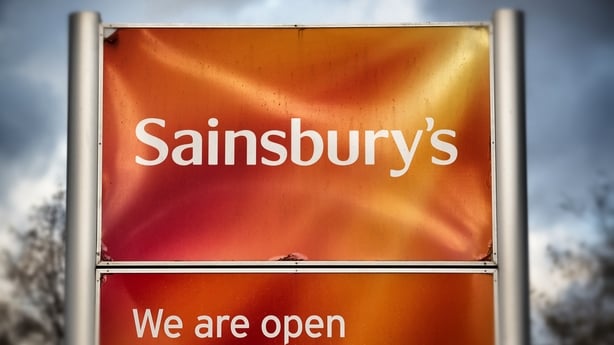British supermarket group Sainsbury's said it was well-placed for Christmas as it reported a 23% jump in first-half profit on higher grocery sales, but its shares fell more than 4% on concerns its sales growth is lagging market leader Tesco.
Sainsbury's maintained its full year profit forecast today whereas Tesco last month raised its earnings outlook and kicked off a share buyback programme.
Shares in Sainsbury's have been buoyed this year by bid speculation that started in April when Czech billionaire Daniel Kretinsky raised his stake in the group to just under 10% and was then fuelled by the bid battle for rival Morrisons.
UK retailers are grappling with delays in their international supply chains that are compounded by labour shortages in the UK transport and warehousing networks.
Supermarkets also face tough comparisons against record sales during Covid-19 lockdowns.
"Our industry faces labour and supply chain challenges. However our scale, advanced cost-saving programme, logistics operations and strong supplier relationships put us in a good position as we head into Christmas," Sainsbury's chief executive Simon Roberts said.
He told reporters Christmas 2021 would be big, with Britons set to make up for last year when pandemic restrictions limited celebrations.
However, he warned shoppers to prepare for a shortage of consumer electronics products and said shipping delays had forced the group to delay a toys promotion.
Sainsbury's made an underlying profit before tax of £371m in the 28 weeks to September 18, up from £301m the same time last year, on revenue up 5.3% to £15.7 billion.
Group like-for-like sales, excluding fuel, rose 0.3% in the half. They had falled 1.4% in the second quarter, having increased 1.6% in the first quarter.
Grocery sales grew by 0.8% but general merchandise sales fell 5.8% against particularly strong lockdown comparisons.

Sainsbury's said it gained market share, reflecting Roberts' "food first" strategy that focuses on improved value, product innovation and better customer service.
It was also helped by customers eating at home more even after lockdown ended, it said.
Roberts said Sainsbury's prices were flat in the first half, though inflationary pressures were building in the second half.
The group maintained its guidance for full-year profit of "at least" £660m, up from the £356m made in 2020-21.
"Against further strong comparatives in the second half of the year, we continue to expect customer behaviour to normalise and grocery growth to moderate and we will continue to invest to further improve our value position," Roberts said.
Sainsbury's also kept its forecast to reduce non-lease net debt by at least £950m by March 2023, generating average retail free cash flow of at least £500m a year over the three years to March 2025 and is paying an interim dividend of 3.2 pence a share.

